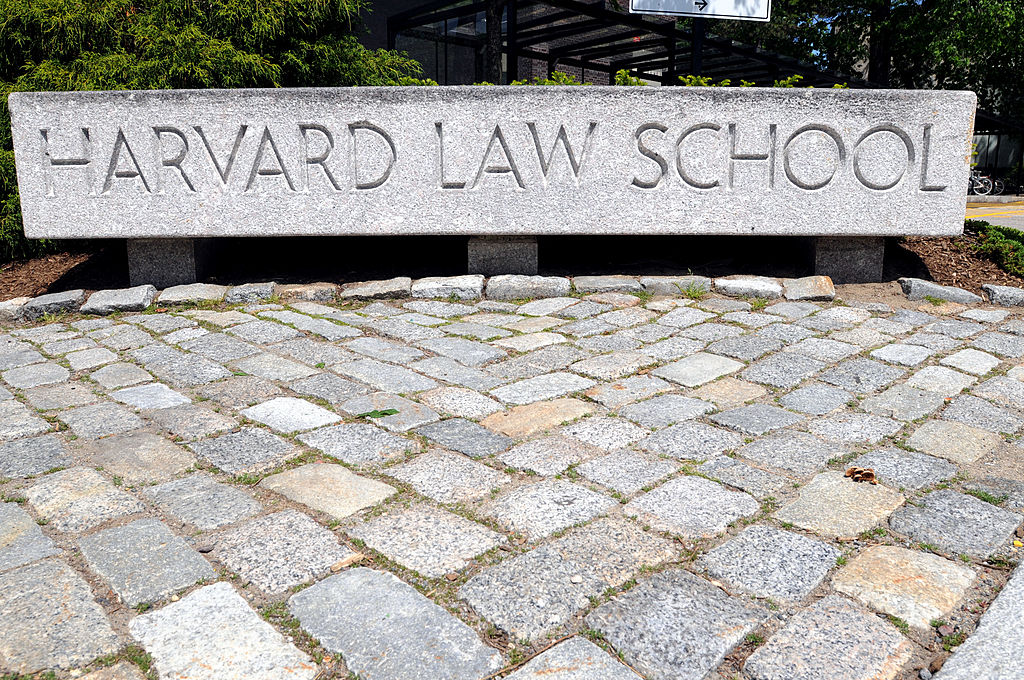Law Schools’ Complicity On Racism Must Be Challenged
This historical moment is crying out for a re-examination of our institutions, and law schools are no exception.

This piece is a commentary, part of The Appeal’s collection of opinion and analysis.
Corporations, newsrooms, and political institutions have faced public pressure to denounce and combat racism as activists nationwide have pushed for police reform. However, there is an institution guilty of perpetuating racial inequality that we have yet to scrutinize: American law schools.
These institutions produce the legal professionals we rely on to interpret and uphold the law, such as the district attorneys who prosecute the police. Yet, they are overwhelmingly misguided and underinformed on issues of racism in the law. And it is not entirely their fault.
Law schools are complicit. As rising second-year Black and brown students at Harvard Law School, we are keenly aware of our privilege. While America is embroiled in a people’s movement for justice long denied, we recognize and embrace our responsibility to challenge the racially sterile curriculum of law school classrooms.
We cannot allow these legal institutions to continue producing race-illiterate lawyers. The consequence of this illiteracy is not hypothetical. It is police killing Black people with impunity, and harsher sentences for Black and brown men, women and children. It is judges selling Black boys to prisons for profit. It is protesters marching for weeks during a pandemic.
Law schools can no longer refuse to depart from the status quo while in the same breath claim they believe Black lives matter.
Law students are told time and again that they are the next generation of great leaders. That their seatmates will be future district attorneys, attorneys general, senators, and Supreme Court justices. This is true, but if you ask us, it is utterly terrifying. First-year law school classes establish students’ foundational legal toolbox. However, many students graduate without ever engaging in a guided classroom discussion on police brutality, systemic racism, the prison industrial complex, broken windows policing, or mass incarceration. When Black and brown students raise these issues in class—and it is almost always these students—they are told these conversations can wait for a more appropriate forum and should be reserved for upper-level elective courses.
Law schools are the gatekeepers to the legal profession. The curriculum choices that professors make communicate to future lawyers what knowledge is necessary and valuable in the practice of law. Relegating comprehensive discussions of racism in the law to elective courses indicates that understanding racism in the law is elective. It is not.
Law professors enjoy an immense amount of discretion in curating their curriculum. Professors have the right to choose the materials and legal frameworks through which they teach. We affirm and respect this academic freedom: our qualm is not with its existence.
Instead, we question why professors so frequently choose to use this discretion to position race as an afterthought and not as a legitimate lens to view the law.
So what does properly incorporating race into the criminal law curriculum look like?
We can begin with intellectual honesty. Criminal law professors should teach that American police descend from slave patrols and Indian constables, and examine how this influences modern-day policing. Prison abolition and police abolition should be engaged as legitimate and practicable positions. Professors should interrogate how crime statistics have been manufactured to fuel the myth of Black criminality. They should refrain from declaring students’ personal experiences with the criminal legal system as inferior to legal doctrine—or as forbidden in the classroom. These narratives illustrate the limitations of academic theory. Anecdotes are data, too.
We can request authentic diversity among law faculty. Law school administrators, hire more Black and brown professors. Make opaque tenure systems transparent, and invite students into the process. Institutionalize working groups of critical race scholars, students, and activists who do the work of anti-racism and can support professors by providing curriculum feedback. Add questions about cultural competency to course evaluations. Do more than use diversity as a buzzword. Engage in the hard work of making law schools more inclusive.
We can extend the conversation to other courses. The legal consequences of racism exist beyond the criminal law. For example, professors can discuss redlining in Property Law and forced labor in Contract Law. As Nikole Hannah-Jones masterfully illustrates in her 1619 Project, racism predates our Constitution and is inextricably linked with American law. Law schools must equip students with the capacity to identify and work against legal racism.
Whatever we do, we cannot let up. As a country, we must demand more from the legal profession. Lawyers cannot be social engineers or stewards of progress if law students are given permission to ignore racism in the law and in our communities. If law schools are to rise to the importance of this moment, then they must send the clear message that learning the contours of racism within the law is fundamental to any legal education worth its salt.
Tyler Ambrose, Zarinah Mustafa, and Sherin Nassar are students at Harvard Law School. Ambrose is a graduate of the University of Virginia, Mustafa is a graduate of Spelman College, and Nassar is a graduate of The George Washington University and SOAS, University of London.
